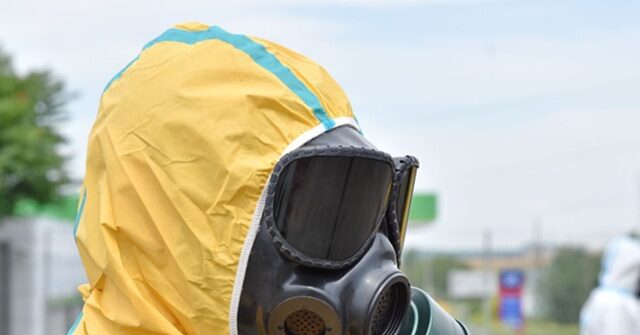On a recent episode of the Fox News Channel’s “Faulkner Focus,” Belleville, NJ, Mayor Michael Melham made alarming revelations regarding local protocols for handling downed drones. During the broadcast, he shared that the state provided urgent guidance instructing local officials on how to respond in the event that a drone lands unexpectedly in their area. According to Melham, the protocol involves immediately contacting the county’s bomb squad and requiring the fire department to don HAZMAT suits. This intense response appears to reflect a heightened sense of security and a recognition that falling drones may pose significant risks, potentially linked to more severe threats like attacks on national security.
Melham elaborated on these directives, indicating that local officials must treat any situation involving a downed drone with utmost seriousness. He compared this response to what would occur in a more catastrophic scenario, such as an airplane crash, emphasizing that there is considerable uncertainty regarding the nature of the drone’s descent. Specifically, he mentioned that authorities are unsure whether the drone may carry a payload, which increases the stakes and necessitates an extensive response to safeguard public safety. The guidance received during a Wednesday briefing seems to be a reliable reflection of current governmental concerns regarding aerial devices and their possible implications for local security.
Host Harris Faulkner highlighted the implications of this advice, questioning whether the response is indicative of a shift in how such occurrences are perceived — from simple accidents to significant security threats. Melham agreed with this interpretation, emphasizing that authorities are compelled to err on the side of caution in an era where aerial technology is increasingly accessible and potentially exploited for malicious purposes. The underlying message is that drones, once seen primarily as tools for recreation or commercial use, are now viewed through a lens that considers their potential risks to public safety and national security.
The mayor’s remarks also raise questions about the limited understanding of drone activity and its implications. He suggested that the response might stem from observations that indicate the likelihood of governmental assets being deployed purposefully, hinting at a broader context of countermeasures against perceived threats. As drone technology becomes more commonplace and sophisticated, local officials may be driven to implement rigorous measures to protect their communities from unexplained aerial activities. The guidance they receive seems to reflect an effort to stay ahead of potential risks in a rapidly evolving technological landscape.
Moreover, the call to respond with such heightened caution could provoke concern in local communities regarding the implications of this surveillance and control. While it is crucial to ensure safety, individuals may question whether these protocols signal unnecessary alarmism or an overreach in the face of evolving technology. This tension between security needs and civil liberties is an ongoing debate within modern governance, especially regarding new technologies that can create complex challenges for policymakers responsible for public safety.
In summary, Mayor Michael Melham’s comments on how Belleville, NJ, will respond to downed drones underscore a significant shift in governmental protocols regarding aerial threats. The urgent directives portray a society that must grapple with the dual-edged nature of technology, where convenience intersects with potential risks. By prioritizing public safety and employing stringent measures, local authorities aim to safeguard communities against uncertainties introduced by drones, which may inadvertently reflect a creeping anxiety about broader security concerns. As local governments navigate these challenges, the discussion around proper responses to drone incidents will continue to evolve, reflecting the intricate balance between safety, security, and civil liberties in an increasingly technologically dependent world.

